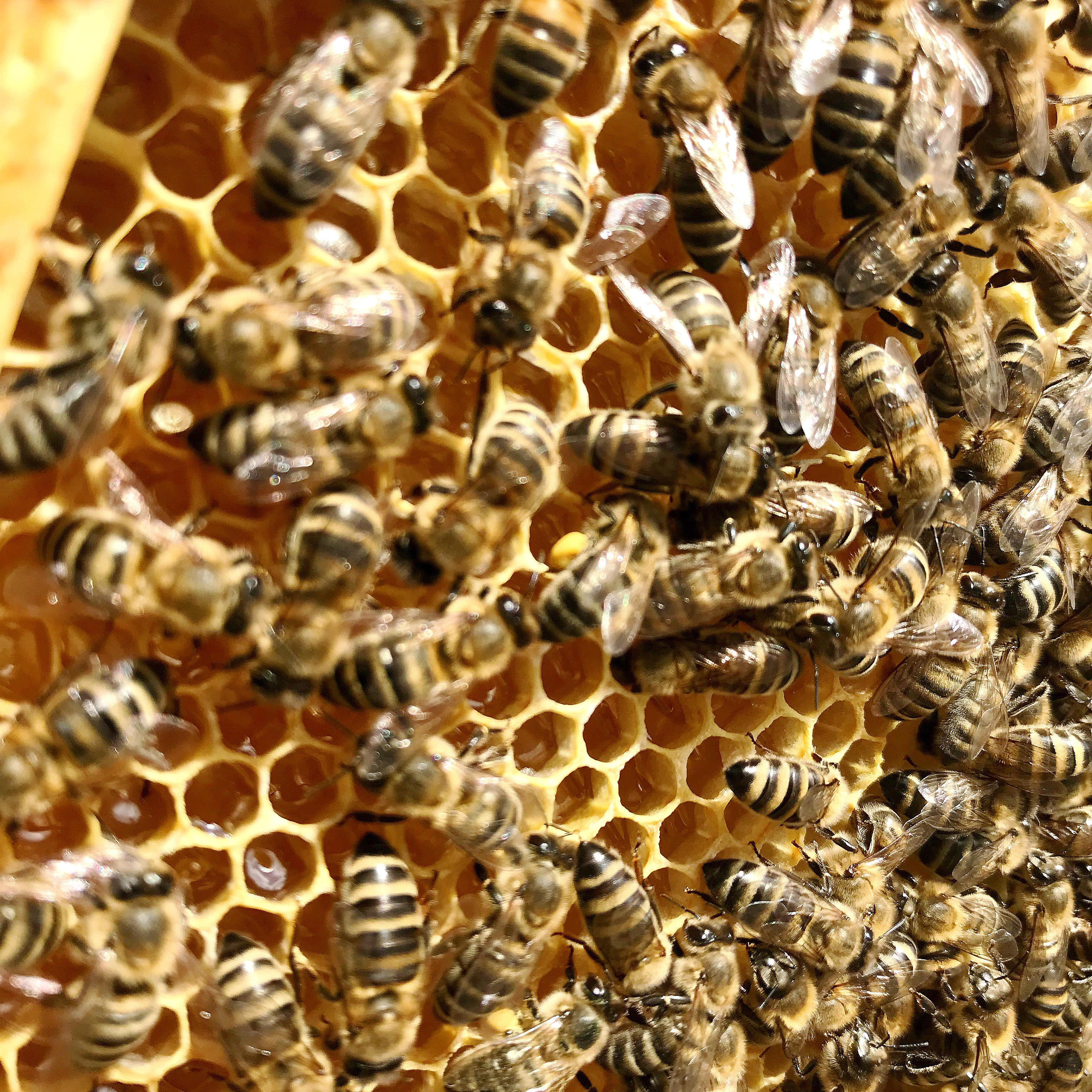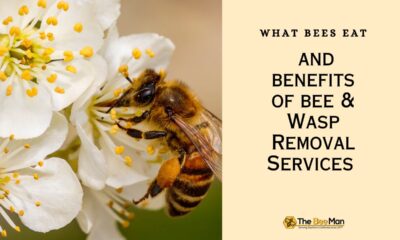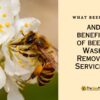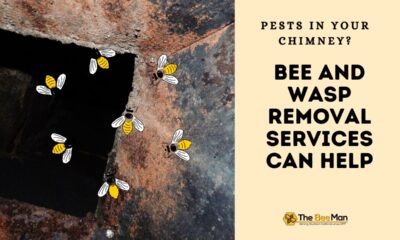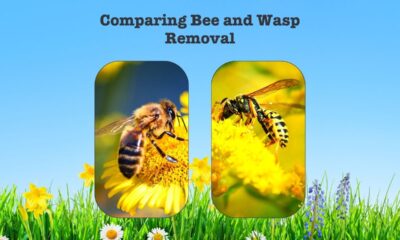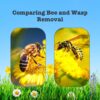Home Improvement
How To Preserve Honeybees To Save Our Food System
Save them, because honey bees pollinate one-third of our food supply and help our food system move forward!
Over the past several years, the bee population has decreased steadily due to climate change and the wide range of pesticides used. If this process continues, it will negatively affect the overall food supply, and ultimately our health. One-third food consumed around the world relies on pollinators, therefore it is our responsibility to save these buzzing creatures. Even if you find them buzzing around your window, please don’t kill them, ask the bee removal services Orange County for the safe removal of the bees.
Bees are responsible for the reproduction of alfalfa and herbaceous plant, that feed bovine, and alternative grazing animals. Without them, we would lose a significant portion of our milk, cheese, butter, yogurt, and other food items.
Without delicious food, our physical strength would become duller- it’s a no brainer. Some of the foremost vitamin and mineral-rich foods are as a result of insect pollination. Deficiencies in these nutrients can have adverse effects on human health. As a result, there will be an increased risk of diabetes, cancer, and heart disease. It will also result in malnutrition and mortality in less-developed regions of the world.
Every year there are potential threats to collapse the bee species including honey bee. It is necessary to provide alternative solutions to mitigate the danger. Even if you find the bees buzzing around your home, do not use pesticides to remove them, it will risk their lives. Call bee removal services Orange County to ensure the safe removal of the beehive.
Bees and our food system
Bees are an extremely vital part of our food system. One out of every three bites of food, we tend to eat, every day, every week, is dependent on bees for pollination. That’s a whole different range of foods, from fruits to nuts to vegetables. Bees are passionate about almonds, tomatoes, pumpkins, and blueberries for every kind of flower. Even the animals and birds rely on the fruits and seeds created within the wild, and the bees are passionate about fruits and seed for pollination.
There are several factors which cause the loss of the bee population, including pesticides, environmental loss, and the illness. The rising usage of Neonicotinoid pesticides is a serious threat to bees. That means it’s in the pollen, it’s in the nectar, it’s in the leaves, and the plant itself becomes the pesticide.
Flowers in your backyard can take up the chemicals. The pesticides seep into the nectar, pollen, leaves, and the stem. And therefore neonicotinoids are found on honey bees, forager bees, nurse bees, larvae, pollen, and nectar.
As bees visit these flowers, they pick up neonics and bring them back to the hive. Therefore the usage of neonicotinoids is prohibited in most parts of the world, including the EU. In North American nation taking steps to chop back on neonics and it is highly recommended for other nations to use the same steps.
Here are five buzzing facts about bees:
1. Both bees and insects are beneficial to increase the quantity of food. They ensure food security for the world population. Studies show that if pollination is managed well on a small scale, the driving factors can be changed and increase the crops and fruits by 24 percent.
2. They increase food quality. Micronutrients rich food items such as fruits, vegetables, and seeds depend on pollination. If bees attracted well and suck the nectar, that means it helps to produce larger and more uniform fruits. Generally, plants place additional of their resources into pollinated fruits, increasing quality and taste.
3. Bees and pollinators like favorable environments to be happy. Pollinators prefer sensible hunt resources, places that are rich in flowers pollen and nectar. They need an area to nest and to eat, and a natural, non-toxic environment. In the history of agriculture, small scale and pesticide-free farming were very favorable for pollinators. Such environments can still be found today in developing countries such as Kenya.
4. Their biggest threats to the absence of appropriate habitat for bees could lead to a continuous decline in pollination. Mono-cropping, pesticides, and higher temperatures associated with climate change all pose problems for bee populations and, by extension, the quality of food we grow. Declining pollination conjointly poses a right away threat to nutrition. If this trend continues, it will eventually result in an imbalanced diet.
5. Protection measures for farmers and governments. To ensure pollination, farmers should create a good habitat for bees. Recommended practices include leaving some areas under natural habitat, creating hedgerows, reducing or changing the usage of pesticides, leaving nesting sites, and planting attractive crops such as cassava around the field.
On a policy level, the government should support more diverse agriculture measures. To facilitate pollination, and improve the quality of food, the usage of toxic pesticides should be banned. Teaching farmers to value pollinators and apply strategies to stay them buzzing around the farm year-around is vital. They need to envision bees as allies instead of their rivals.
While you design your backyard for them, if the bees have created their hive somewhere in your wall, make sure you reach out to the bee removal services Orange County.

